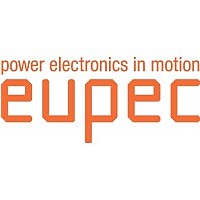SAF-TC1167-128F133HL AD Infineon Technologies, SAF-TC1167-128F133HL AD Datasheet - Page 17

SAF-TC1167-128F133HL AD
Manufacturer Part Number
SAF-TC1167-128F133HL AD
Description
IC MCU 32BIT FLASH 176-LQFP
Manufacturer
Infineon Technologies
Series
TC116xr
Specifications of SAF-TC1167-128F133HL AD
Core Processor
TriCore
Core Size
32-Bit
Speed
133MHz
Connectivity
ASC, CAN, EBI/EMI, MLI, MSC, SSC
Peripherals
DMA, POR, WDT
Number Of I /o
88
Program Memory Size
1MB (1M x 8)
Program Memory Type
FLASH
Ram Size
128K x 8
Voltage - Supply (vcc/vdd)
1.42 V ~ 1.58 V
Data Converters
A/D 32x12b
Oscillator Type
External
Operating Temperature
-40°C ~ 85°C
Package / Case
176-LFQFP
Data Bus Width
32 bit
Data Ram Size
104 KB
Interface Type
ASC, MLI, MSC, SSC
Maximum Clock Frequency
133 MHz
Number Of Programmable I/os
88
Number Of Timers
3
Maximum Operating Temperature
+ 85 C
Mounting Style
SMD/SMT
Minimum Operating Temperature
- 40 C
On-chip Adc
2 (12 bit, 16 Channel) / 10 bit, 4 Channel
Packages
PG-LQFP-176
Max Clock Frequency
133.0 MHz
Sram (incl. Cache)
128.0 KByte
Can Nodes
2
A / D Input Lines (incl. Fadc)
36
Program Memory
1.0 MB
For Use With
B158-H8690-X-0-7600IN - KIT STARTER TC116X SERIES
Lead Free Status / RoHS Status
Lead free / RoHS Compliant
Eeprom Size
-
Lead Free Status / Rohs Status
Details
Other names
SP000602800
2.2
The TC1167 combines three powerful technologies within one silicon die, achieving new
levels of power, speed, and economy for embedded applications:
•
•
•
DSP operations and addressing modes provide the computational power necessary to
efficiently analyze complex real-world signals. The RISC load/store architecture
provides high computational bandwidth with low system cost. On-chip memory and
peripherals are designed to support even the most demanding high-bandwidth real-time
embedded control-systems tasks.
Additional high-level features of the TC1167 include:
•
•
•
•
•
•
•
•
•
TC1167 clock frequencies:
•
•
•
The TC1167 is a high-performance microcontroller with TriCore CPU, program and data
memories, buses, bus arbitration, an interrupt controller, a peripheral control processor,
a DMA controller and several on-chip peripherals. The TC1167 is designed to meet the
needs of the most demanding embedded control systems applications where the
competing issues of price/performance, real-time responsiveness, computational power,
data bandwidth, and power consumption are key design elements.
The TC1167 offers several versatile on-chip peripheral units such as serial controllers,
timer units, and Analog-to-Digital converters. Within the TC1167, all these peripheral
units are connected to the TriCore CPU/system via the Flexible Peripheral Interconnect
(FPI) Bus and the Local Memory Bus (LMB). Several I/O lines on the TC1167 ports are
reserved for these peripheral units to communicate with the external world.
1) For CPU frequencies > 80 MHz, 2:1 mode has to be enabled. CPU 2:1 mode means: f
2) For PCP frequencies > 80 MHz, 2:1 mode has to be enabled. PCP 2:1 mode means: f
3) CPU 1:1 Mode means: f
Data Sheet
Reduced Instruction Set Computing (RISC) processor architecture
Digital Signal Processing (DSP) operations and addressing modes
On-chip memories and peripherals
Program Memory Unit – instruction memory and instruction cache
Serial communication interfaces – flexible synchronous and asynchronous modes
Peripheral Control Processor – standalone data operations and interrupt servicing
DMA Controller – DMA operations and interrupt servicing
General-purpose timers
High-performance on-chip buses
On-chip debugging and emulation facilities
Flexible interconnections to external components
Flexible power-management
Maximum CPU clock frequency: 133 MHz
Maximum PCP clock frequency: 133 MHz
Maximum SPB frequency: 80 MHz
System Architecture of the TC1167
SPB =
f
CPU
. PCP 1:1 mode means: f
3)
13
2)
1)
SPB
= f
PCP
SPB
SPB
= 0.5 * f
= 0.5 * f
Introduction
V1.3, 2009-10
TC1167
PCP
CPU











